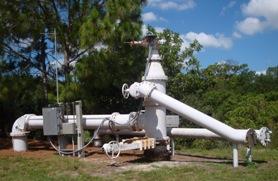

Scholarships in water studies/ research
Feedback 1: 999
999
Feedback 2: 999
999
Feedback 3: 999
999
Feedback 4: 999
999
Feedback 5: 999
999
Feedback 6: 999
999
Feedback 7: 999
999
Feedback 8: 999
999
Feedback 9: 999
999
Feedback 10: 999
999
Feedback 11: 999
999
Feedback 12: 999
999
Feedback 13: 999
999
Feedback 14: 999
999
Feedback 15: 999
999
Feedback 16: 999
999
Feedback 17: 999
999
PhD Scholarships in Denmark
08 Oct 2017
Offered by: Technical University of Denmark
Scholarship funds: PhD program

Scholarship description
DTU Compute invites talented candidates who have obtained remarkable results during their M.Sc. studies and who have demonstrated promise and potential in their field of study, to apply for PhD scholarships. The starting date is expected to be January 1 2018 or as soon as possible thereafter.
You can apply for fully funded or partially funded scholarships from DTU Compute. For partially funded DTU Compute scholarships, documentation for the remaining funding must be provided with the application. The purpose of the co-funded scholarships is to increase the total volume of scholarships and to promote innovation in collaboration with external parties.
Our department is an internationally unique academic environment spanning the science disciplines mathematics, statistics and computer science. At the same time, we are an engineering department developing informatics and communication technologies in their broadest sense.
DTU Compute strives to achieve research excellence in its basic science disciplines, to achieve technological leadership in research and innovation, and to address societal challenges in collaboration with partners at DTU and other academic institutions, nationally and internationally, and, equally important, with industries and organizations.
We play a central role in education at all levels of the engineering programs at DTU - both in terms of our scientific disciplines and our didactic innovation.
Projects
The research topic of the PhD project is open, but it must be related to the main research areas of the department as found in the section descriptions:
Algorithms, Logic and Graphs – The research of the Algorithms, Logic, and Graphs section covers Algorithmic, Computational Logic, and Graph Theory and is the scientific foundation for constructing robust, efficient, and intelligent software applications based on mathematically sound solutions
Cognitive Systems - The Section for Cognitive Systems research information processing in man and computer, with a particular focus on the signals they exchange – audio, imagery, behavior – and the opportunities these signals offer for modeling and prediction.
Cyber Security - Cyber security examines the methods, techniques and tools for securing computer systems that are accessible through a network, typically the Internet, which is often known as cyberspace.
Dynamical Systems - The mission of the section is to conduct fundamental, advanced, strategic and applied research in the area of dynamical systems.
Embedded Systems Engineering - ESE conducts research in a broad range of topics central for design of modern embedded systems, including real-time systems, fault-tolerant and safety-critical systems, hardware/software codesign, concurrent and parallel programming, heterogeneous distributed multi-core architectures and execution platforms, as well as a range of models, methods and tools for the analysis, design and verification of such systems
Image Analysis & Computer Graphics - From the analysis of wavelengths to the artificial world of computer graphics numerous application areas are found, and because of the development of algorithms and hardware applications appear in the home, car, industry and health care. Image analysis is often combined with visualization and modeling from computer graphics, why research and development in both areas are symbiotically combined.
Formal Methods - for safe and secure systems - In the section for Formal Methods we study techniques and tools that can make it possible to achieve these goals. We develop approaches for modelling systems and their properties
Mathematics - The section carries out fundamental mathematics research. We form the mathematical knowledge base for emerging new areas in the technical sciences, and we investigate new applications of pure mathematics.
Scientific Computing - The section’s expertise includes many of the aspects of Scientific Computing: from the modeling of physical phenomena to designing, analyzing, and implementing the methodology for the solution of real-life problems.
Software Engineering - Software Engineering is the engineering discipline concerned with all phases and aspects of developing software, from its first vague idea to the implementation and maintenance of the product.
Statistics and Data Analysis - The section is based on scientific competences within all sections at DTU Compute but has special emphasis on statistics, pattern recognition and software development
The project description must be discussed with and accepted by the potential supervisor prior to the application.
Qualifications
The ideal PhD student is curious, creative, independent and yet able to collaborate as a team player in a research group. Candidates must hold a M.Sc. degree in engineering or an equ
Scholarship location:Denmark
More information (external link to the scholarship website)
Source: WWW.DTU.DK
Latest shared scholarship
PhD Scholarship - Water managementDate: 12-Jan-2021 Location: Brisbane, QLD, AU Company: CSIRO ....
